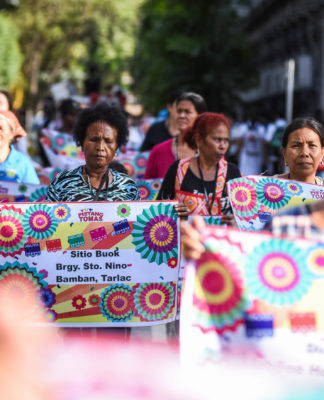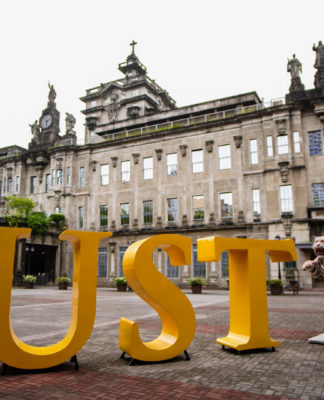DEMOCRACY without limits will ultimately lead to anarchy.
Lecturing before University faculty last June 11, former Malaysian Prime Minister Mahathir Mohammad explained how Malaysia achieved economic success through a controlled democracy.
Mahathir, whose 22-year rule ushered Malaysia into prosperity, said democracy will not deliver its promises if people only think of the freedoms attached to it.
“When people think only of the freedoms of democracy and know nothing of the implied responsibilities, it will result in instability and instability will not permit development to take place,” Mahathir said after accepting the title “Honorary Professor” from the University.
Freedom is being enjoyed by some at the expense of the community as a whole, leading to a point where privacy is invaded, Mahathir added.
“Secrets, including sensitive military secrets, are being leaked in the name of freedom of information. Nothing is sacred anymore,” he said.
He spoke of a country that often replaced its leaders and was unable to progress because of “too much democracy.”
“The government had to deal with these disruptions and neglect the work of governing and development that is expected to carry out… And soon once again the government is brought down and new elections would be held—only to end with the same results,” Mahathir said.
With proper leadership, a government would be able to carry out policies and projects for the development of a country. “The leader in particular must be incorruptible. His being so will lessen the level of corruption among those under him,” he said.
Overcoming temptations would be easier if a leader is frequently reminded that he will lose power one day, he said.
“The more corrupt they (leaders) are, the more they would want to hold that position for life,” Mahathir said.
“Great people” who should be leading the country are unwilling to take the risk because of the filth in politics, leaving power to leaders who are “mediocre people at best,” he said.
Mahathir lauded the Association of Southeast Asian Nations (ASEAN) for allowing its member-countries to “learn from each other,” calling it the most successful group of developing countries in history.
He called on ASEAN to use its half-billion population as a market to increase the region's economic influence. “Southeast Asian countries have great potentials for growth, prosperity and empowerment. All we need is people and leaders who love their country and people more than they love themselves,” Mahathir said as he concluded his lecture.
‘Honorary professor’
Mahathir was given an honorary professorship by UST for speaking on behalf of the developing world.
Newly installed Rector Fr. Herminio Dagohoy, O.P. paid tribute to Mahathir’s economic legacy, noting that the 86-year-old Malaysian leader spoke out against unfair divisions between rich and poor nations.
“You opened the country to foreign investment, reformed taxation, reduced trade barriers, and privatized numerous state-owned enterprises, besides creating world-class physical infrastructure,” Mahathir’s diploma states. “Under your guidance and leadership, Malaysia played a more active role in the international arena by acting as the voice for the developing nations in Asia and Africa.”
“A professorship is usually given to somebody with high academic achievement, but it can also be given to an external scholar who has extensively distinguished himself in the international level—in terms of leadership, achievement, and distinction,” Graduate School Dean Lilia Sison told the Varsitarian.
Former recipients of the honorary professorship were Yuan Tseh Lee, president of the International Council of Science and 1985 Nobel laureate in chemistry; and Msgr. Marcelo Sanchez Sorondo, chancellor of the Vatican’s Pontifical Academy of Social Sciences and the Pontifical Academy of Science.
The event was witnessed by Malaysian Ambassador to the Philippines Ibrahim Saad, members of the diplomatic corps, Philippine and Malaysian officials, the UST Academic Senate, and faculty members.
Mahathir, who served as prime minister from 1981 to 2003, is known for his “New Development Policy” which contributed to poverty reduction. His “Vision 2020” served as Malaysia’s economic development blueprint. with reports from Reden D. Madrid

















